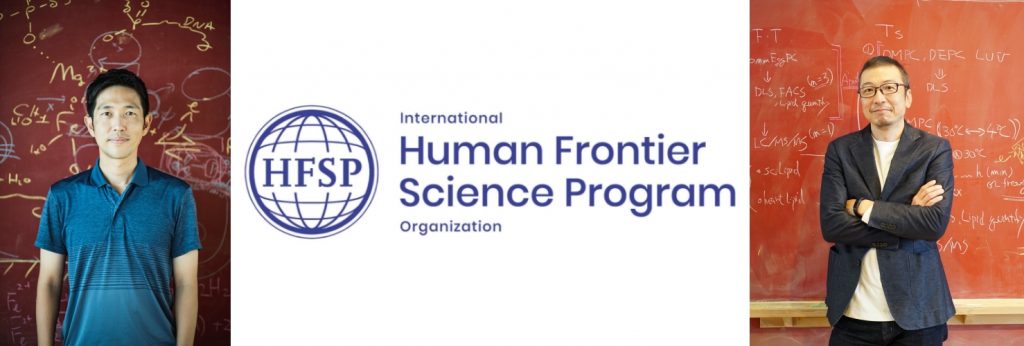
ELSI Professors Tomoaki Matsuura and Kosuke Fujishima received the HFSP Program and HFSP Early Career grants, respectively, along with a team of scientists worldwide.
The Human Frontier Science Program is an international research support program implemented by the International Human Frontier Science Program Organisation (HFSPO) based in Strasbourg, France. It aims to promote intercontinental collaboration and training in cutting-edge, interdisciplinary research focused on the life sciences. HFSPO receives financial support from the governments or research councils of Australia, Canada, France, Germany, India, Italy, Japan, the Republic of Korea, New Zealand, Norway, Singapore, Switzerland, the UK, USA, as well as from the European Union. For the 2023 call, 9 Research Grants ‘Early Career’ and 25 Research Grants ‘Program’ were awarded from a total of 596 letters of intent, 81 of which were selected for the full application.
Matsuura’s project on ‘Autonomous evolution of synthetic cells under non-equilibrium conditions’ was awarded the HFSP Program grant. Matsuura says, “I am very pleased to receive the HFSP grant, one of the most popular grants supporting interdisciplinary and international collaborations. Many discussions with Dieter Braun (LUM Munich) and Kerstin Göpfrich (MPI Heidelberg) made this possible. I am very excited to work together with them.”
HFSP’s collaborative research grants are given for a broad range of projects under the umbrella theme ‘Complex mechanisms of living organisms’. The program supports cutting-edge, risky projects and is the only one that enables true global collaboration among international teams of scientists with laboratories in different countries.
“Autonomous evolution is the key word of our research. We aim to create primordial cell that possesses evolvability, one of the most important features of all living matters under out-of-equilibrium settings. The project matches very well with the scope of ELSI 2.0,” Matsuura adds.
Fujishima’s project on ‘Exploration of the structure-function space of prebiotic to biological proteins ‘ was awarded the HFSP Early Career grant. The project is a renewed award. Fujishima says, “Origin and evolution of protein holds an important question to understand how biological system arose on Earth and beyond. I am very thrilled and honoured to lead this exciting international and interdisciplinary project with extremely talented collaborators, Stephen Freeland (University of Maryland), Stephen Fried (Johns Hopkins University) and Klara Hlouchova (Charles University).”
HFSP Early Career Grants are for applicants within five years of establishing their independent research group and no more than ten years from their doctoral degree. The group of investigators are expected to provide cross-disciplinary yet intriguing concepts in life science and other related research areas.
Hence, Fujishima added, “We will explore the folds and functions of “xeno” proteins consisting of amino acids other than the 20+ canonical proteinogenic alphabets. It enables us to assess whether the canonical amino acid alphabet is truly optimal or not. Furthermore, this project allows us to explore the chemical space of xeno-alphabets that could support life”.
More information: https://www.hfsp.org/hfsp-news/support-frontier-research-2023-hfsp-research-grants
